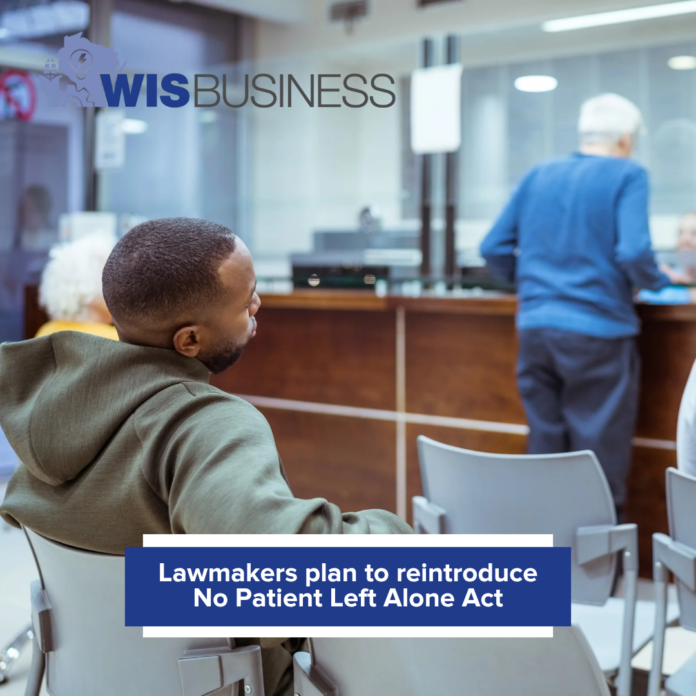Republican lawmakers are circulating legislation from last session that would allow patients in Wisconsin health care facilities to receive visitors during public health emergencies, with various restrictions in place.
Sen. André Jacque, R-New Franken, and Rep. Chuck Wichgers, R-Muskego, recently sent out a cosponsorship memo for LRB 4368/1 and 0049/1, called the No Patient Left Alone Act. They say they’ll be reintroducing the legislation after it passed the Senate last session but wasn’t taken up by an Assembly committee.
The lawmakers say the COVID-19 pandemic “highlighted a heartbreaking and avoidable consequence” of emergency public health protocols, as thousands of patients and residents were “left to suffer alone.” They note family members and caregivers weren’t able to make visits to hospitals, long-term care facilities and hospices, even in critical situations.
“Despite the heroic efforts of health care workers, virtual visits often proved insufficient,” bill authors wrote. “The emotional, psychological, and even physical harm caused by prolonged isolation has been widely documented, especially among older adults and individuals with disabilities.”
The memo says the bill reflects the final, amended version of 2023 Senate Bill 257 that passed the state Senate on a voice vote early last year.
Under the legislation, assisted living facilities, nursing homes and hospitals would be required to allow “certain visits” for residents or patients during an outbreak or epidemic of a communicable disease. Facilities would need to allow at least one member of the clergy and an “essential visitor” during “compassionate care” situations, such as when the resident is grieving or approaching the end of life.
The bill lays out qualifying situations where hospitals would need to allow clergy members or essential visitors, such as if the attending health care provider judges the benefit of the visit “outweighs the potential negative impacts” on other patients, visitors and staff. That’s according to an analysis by the Legislative Reference Bureau included in the memo.
Along with defining an essential visitor, the bill also provides exceptions where the care facility could deny visitation. Those include: if the visitor won’t comply with health and safety policies; if it’s unknown if the visitor or patient could spread a contagious disease and adequate precautions aren’t available; and if the resident or patient declines the visit, among others.
Other provisions of the bill relate to potential federal visitation guidance overriding the bill’s requirements, a process for filing complaints against facilities that don’t comply, and more.
“While COVID-19 brought this issue to the forefront, this legislation is not about looking backward,” bill authors wrote in the memo. “It’s about ensuring Wisconsin is prepared for the future — with clear policies that preserve human dignity, empower families, and respect the vital role of caregivers and loved ones in the healing process.”
The cosponsorship deadline is Aug. 27 at 5 p.m.
See the legislation’s history and bill text here.







